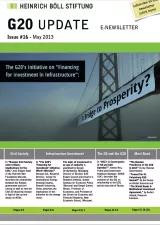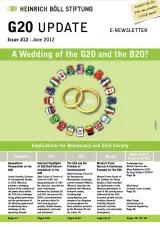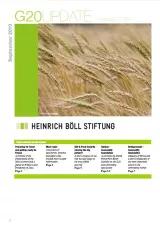History of the G20 & BRICS: 2010 - 2015
From 2010 - 2015, the Heinrich Böll Foundation published a quarterly newsletter, the “G20-BRICS Update,” on the G20 Summit processes and outcomes with special emphasis on the contributions to the processes by civil society organizations.























